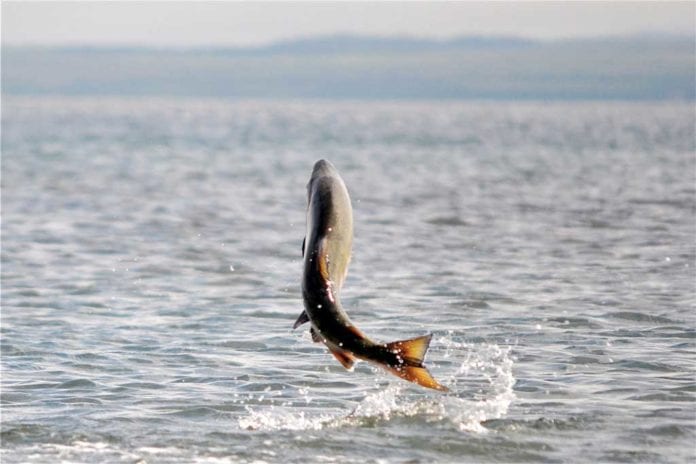Area M commercial seiners have declined a plea from more than a dozen fisheries and Alaska Native entities to stand down from the June salmon fisheries, saying even if they did it would not likely change the conservation or management outcomes in the Arctic-Yukon-Kuskokwim region of western Alaska.
While empathizing with communities that will be restricted from even subsistence fishing due to poor returns of chum salmon to the Yukon River, all the Area M Seiners Association would promise in a recent letter to Karen Gillis, executive director of the Bering Sea Fishermen’s Association, was that Area M seiners will take voluntary actions this season to minimize any potential impact they may have on AYK chums.
“Area M fishermen are taking voluntary actions this season to minimize any potential impact we may have on AYK chums,” said Kiley Thompson, president of Area M Seiners Association.
Thompson said that the Area M seiners are taking the poor chum returns seriously and believe their voluntary actions will greatly minimize chum catch relative to 2021. He also told Gillis that Alaska Department of Fish and Game scientists do not believe that the harvest of chums in Area M or bycatch in the Bering Sea Pollock fishery are a major contributor to the decline of salmon stocks in the AYK.
Thompson’s letter of June 7 came in response to a letter from Gillis on May 24, asking Area M fishermen to consider the dire chum salmon harvest projections for 2022 and a request from the Bering Sea Fishermen’s Association and over a dozen other fisheries and Alaska Native entities to stand down during all June commercial salmon openers to prevent the interception of AYK-bound chum stocks. Gillis and other signers of the letter to Thompson told him that high rates of AYK-bound chum salmon area intercepted in Area M’s June salmon fishery, particularly within the Shumagin Islands and South Unimak districts.
“The Western Alaska Salmon Stock Identification Program (WASSIP) demonstrated that AYK-bound chum stocks comprised, on average, between 31.53% and 51.8% of the June commercial chum harvest between 2007 and 2009,” Gillis wrote. “WASSIP also confirmed that with respect to the South Unimak district, AYK-bound chum stocks were the most dominant group present in the June commercial harvest, “Between 2007 and 2009, AYK-bound chum stocks comprised, on average, 42.4% to 82.93% of the South Unimak district’s June commercial chum harvest.”
Gillis also noted that the Yukon area in 2021 was allowed no summer or fall subsistence or commercial chum harvest. “Within the Kuskokwim drainage less than 6,000 chum salmon were commercially harvested in 2021 and there was zero i-river commercial opportunity,” she wrote. “In stark contrast in June 2021 alone, the South Unimak and Shumagin Islands June commercial fishery harvested 1,168,601 chum salmon, the highest chum salmon harvest in the history of the Area M fishery.
“…If the Area M purse seine fleet does not stand down the unmitigated harvest of AYK-bound chum salmon all but assures the crash of chum stocks and the destruction of economies and traditional subsistence lifestyles,” Gillis said.
The letter was signed by Vivian Korthuis, CEO of the Association of Village Council Presidents; Robin Samuelsen Jr., board chair of the Bristol Bay Economic Development Corp.; Andrew Guy, president of Calista Corp.; Eric Deakin, CEO of Coastal Village Region Fund; Mary David for Melanie Bahnke, president of Kawerak, Inc.; Kevin Whitworth, interim executive director of the Kuskokwim River Inter-Tribal Fish Commission; Janis Ivanoff, president and CEO of the Norton Sound Economic Development Corp.; Serena Fitka, executive director of the Yukon River Drainage Fisheries Association; Ragnar Alstrom, executive director of the Yukon Delta Fisheries Development Association; Stephen Maxi Jr, speaker for the Yukon-Kuskokwim Regional Tribal Government; Brooke Woods chair of the Yukon River Inter-Tribal Fish Commission, and Theresa Clark, executive director of the Yukon River Inter-Tribal Watershed Council.
Copies of the Gillis letter were also sent to Gov Mike Dunleavy, Fish and Game Commissioner Doug Vincent-Lang and the Alaska Board of Fisheries.






